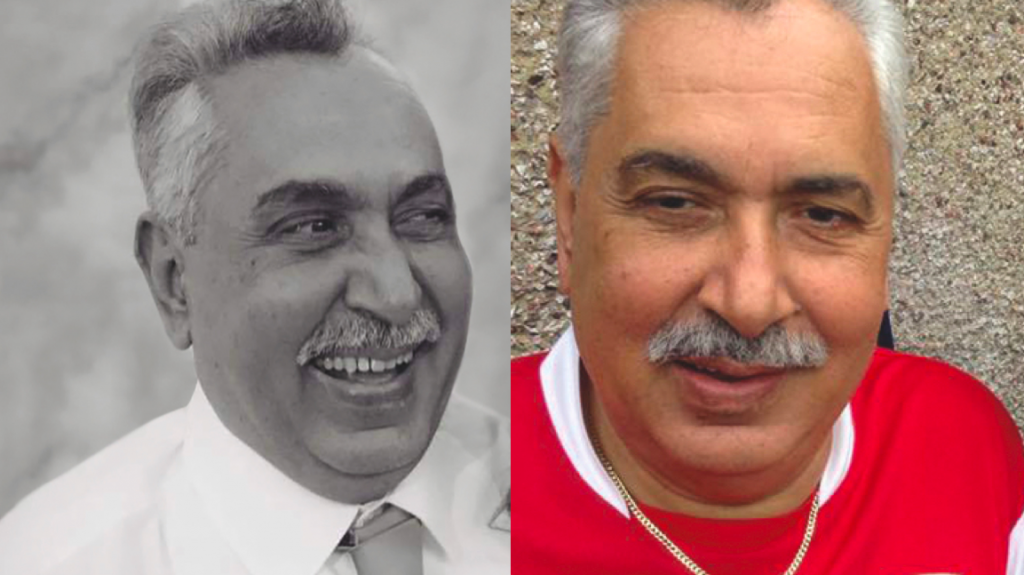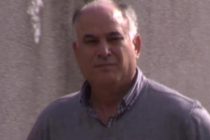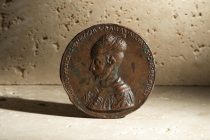Today, Arsenal take on Chelsea in the FA Cup Final, the climax of what has undoubtedly been the strangest football season in living memory, primarily due to the impact of the coronavirus pandemic.
The two London sides will battle it out at Wembley Stadium without any fans in order to prevent the further spread of Covid-19.
The pandemic has already claimed the lives of thousands of people in Britain, including 66-year-old Arsenal fanatic Osman Mehmet.
The Turkish Cypriot from Ergazi, on the Karpaz Peninsula in Cyprus, passed away in April having caught the virus while caring for his father-in-law Mustafa Mehmet, who also died of Covid-19 in March.
Osman’s middle daughter Zuhre Mehmet told me her grandfather had exhibited no overt coronavirus symptoms, although he clearly wasn’t well:
“He had no energy. He couldn’t move. Dad had to help take him to the toilet, do everything because grandad was so weak.
“Grandad lived in his own home, close to [my] mum and dad’s. He had broken his arm the week before. We’re not sure if he caught the virus from the hospital, a carer or a visitor to the house.”
When Mustafa become increasingly unresponsive, the family called 999 as they feared he had suffered a stroke. Zuhre takes up what happened next:
“It was only after they admitted grandad to hospital and did tests that they realised he had coronavirus. He was so ill with it, all they could offer him was palliative care.”
Mr Mehmet died not long after his admission. A week later, his son-in-law Osman became unwell and started to show symptoms of the virus. Zuhre describes how her diabetic father was vomiting and couldn’t keep food down, which in turned played havoc with his blood sugar levels.
“The doctor initially thought dad had caught a bug. When he didn’t improve, we called the ambulance and dad was taken to North Middlesex Hospital on 23 March.
“The hospital was on lockdown and we weren’t allowed in. They took him to A&E first, and then he was moved to the High Dependency Unit.
“Dad’s never, ever, been admitted to hospital. We knew it wouldn’t be easy for him. We tried to reassure him on the phone, but he kept saying he couldn’t breathe: ‘Ölüyorum, ölüyorum. Nefes alamam [I’m dying, I’m dying. I can’t breathe’]’. We tried to be positive, telling him everything was going to be OK. We told him to listen to the nurses.”

Due to Osman’s severe breathing difficulties, the medical staff decided to induce him to alleviate the pressure on his lungs. Zuhre and her siblings talked to their father again:
“We told dad they were going to put him to sleep, so he could rest, and that he would be OK.”
“My father was a big, solid man. He was so energetic. He had a few minor health problems. Diabetes. Also some problems with blocked arteries, but these were all under control.”
After being induced, Osman was moved to critical care, but even with mechanical aids his body didn’t respond well. “His lungs weren’t coping. His kidneys started failing, his organs started failing,” explained Zuhre.
The family kept in constant touch with staff on the ward for updates on Osman’s condition. At one point there seemed “a slight glimmer” that his health was improving, prompting doctors to consider starting Osman on a medical trial with a new drug. In the end, doctors ruled he was too weak to start the treatment.
Then, out of the blue, on 1stApril, the family received a call from a doctor, described by Zuhre as “quite arrogant”, telling them they would be switching off Osman’s life-support machines.
“We begged the doctor to wait longer, but he didn’t want to listen. He told us it wasn’t our decision to make, that it was a medical decision.”
Zuhre points to the experiences of celebrities such as television presenter Kate Garraway, whose husband Derek Draper contracted the virus in March and remained induced for over three months, despite being seriously ill.
“Why,” she asks, “were they kept alive and given the chance to fight, but not my father?”
The doctor who gave Zuhre, her mum and sisters the bad news about Osman also denied them permission to visit him for the last time.
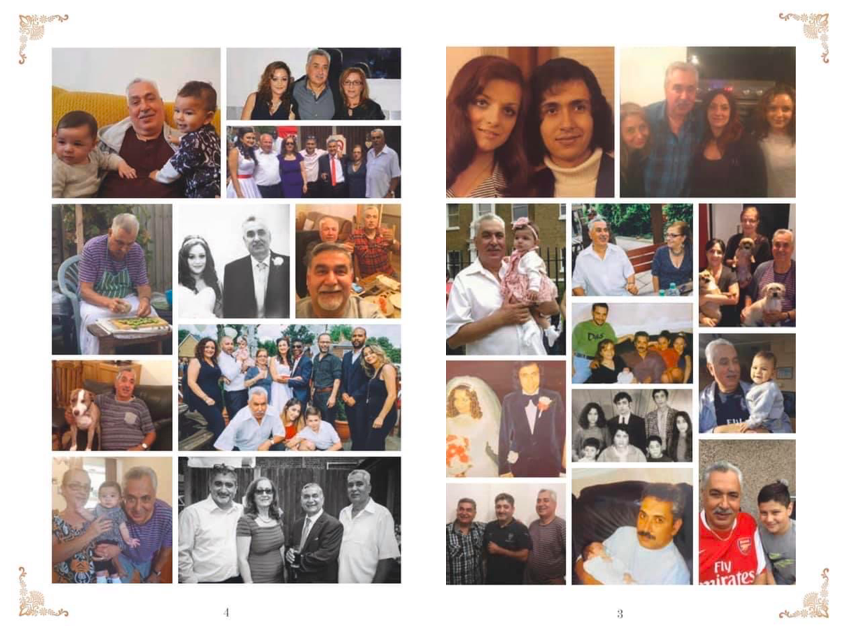
Zuhre asked the doctor who would be with her father at the end, and what would happen to his belongings. The doctor gave matter of fact information, as the devastated family tried to absorb the shocking news that in a short time they would lose their beloved Osman forever.
“We called constantly. Redialling, redialling, trying to get through to someone on the ward. We eventually managed to speak to the matron. She was so understanding, and we discussed a final video call to say our goodbyes, but sadly we weren’t able to do it.”
“At 7.35pm a male nurse called us. He said dad’s machine had been turned off at 7.20pm and that he had just passed away.”
Zuhre pauses, unable to speak as the tears fall. When she continues, her voice is barely above a whisper:
“The nurse said dad died peacefully. He told us, ‘I’m holding his hand. He is not alone’. Then the nurse put his phone on loud speaker and let us say our final messages to dad.”
Zuhre takes a moment to compose herself again, before explaining that after the machine was switched off, her father’s organs failed, causing a heart attack.
Osman died on 1 April, a fortnight shy of his 67th birthday. He was buried on 14thApril, the day before his birthday on the 15th. In death, as in life, Covid-19 stopped families mourning their relatives in normal ways.
“We couldn’t spend time with dad at the hospital, but Egg [Erkin Guney, head of the UK Turkish Islamic Trust] was great. He let us come to the [Shacklewell Lane] mosque and sit with dad. He was in a coffin, which we couldn’t open due to the virus, but it was comforting being close to him.”
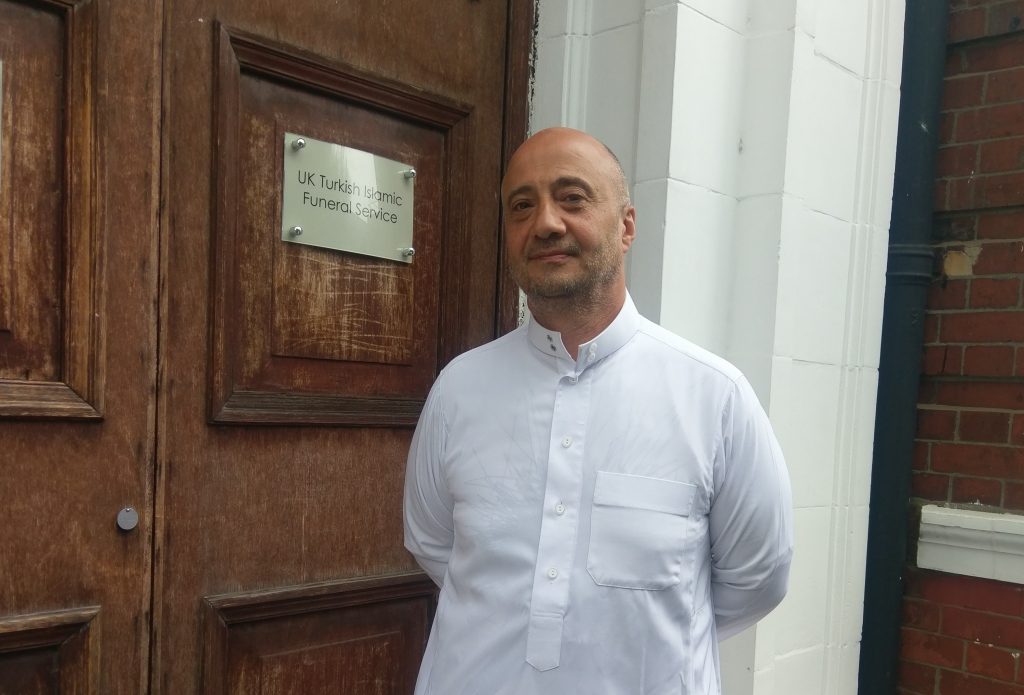
As with many grieving relatives, Zuhre’s immediate focus was on dealing with the formalities arising from her father’s death. The adrenaline kicked in as she and her siblings set about organising their father’s funeral and putting his affairs in order, while supporting their mum.
Zuhre tried to track down Osman’s personal belongings, which the family never received from the hospital, appearing on ITV to highlight the issue.
The tempo continued like this for several weeks after Osman’s death, keeping Zuhre too busy to take in the enormity of her loss.
“After the funeral and dealing with family matters, I came crashing down. My older sister and I are currently having therapy to deal with dad’s death.”
Thankfully Zuhre’s employer, which runs nursery schools in London, has been extremely understanding.
“My work has been amazing. They’ve let me have time off [work] till now,” says Zuhre. “My colleagues have been so supportive, sending me messages and so much more. Their kindness really touched me, as has all the love we’ve had from friends and family, and people who knew my dad.”
Our conversation turns to Osman’s life and early years in the UK. He had travelled to Britain in the 1970s with fellow Ergazi villagers and settled in Stoke Newington, North London, where there was a big Turkish Cypriot community. He would subsequently move down the road to Edmonton, where he spent the rest of his life.
Much of Osman’s professional life had been in the rag trade. He was originally a presser before going on to own factories in Bethnal Green and Northumberland Park in Tottenham. He was married with three grown-up daughters and six grandchildren, and retired at the time of his death, spending most of his time caring for his wife and father-in-law.
“Everyone says their dad is special. Mine was too,” says Zuhre. “He was one in a million. He was so kind and caring. In the end his kindness killed him. He was big-hearted. Everyone loved him. Everyone knew him. He loved animals. He wouldn’t hurt a single living thing. ”
Zuhre’s comments are borne out on social media. As news of Osman’s death circulated on 1 and 2 April, Facebook was awash with condolences from the large Turkish Cypriot community in Britain, and family and friends in Cyprus. On the day of his funeral, Osman’s niece Seyda Elmas wrote on Facebook:
“He was an amazing man. Full of life, so funny, outspoken (but REAL), a lover of people, a lover of animals and a family man. He was known and loved by many and he will leave a big hole in many hearts that he has left behind… our family will mourn his loss forever.”
Ahmet Orhan, a family friend also from Ergazi, described Osman as “a great abi [older brother], friend and elder” who was “a crazy Arsenal and Fenerbahçe fan – our number one topic was always football.”
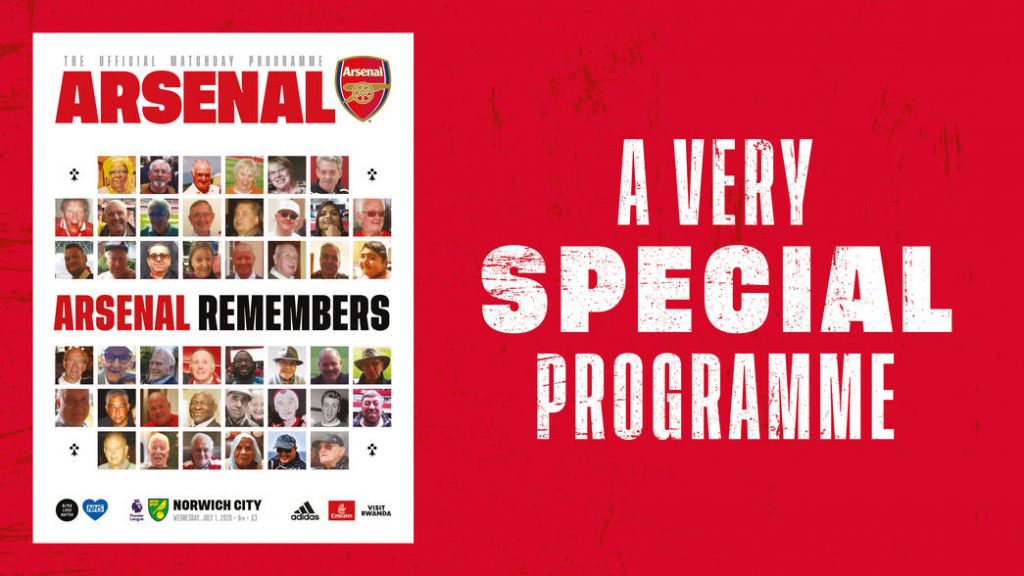
Zuhre also recalls her father’s devotion to football: “He loved Arsenal. He refused to watch if the team were playing badly. He’d swear. He was very passionate about them, and Fenerbahçe.”
Both football clubs recently paid tribute to Osman. Arsenal featured him on the front cover of a special match day programme dedicated to fans who had lost their lives to coronavirus, with a picture and message about each of them inside.
Osman’s nephew Ali and fellow Arsenal supporter had contacted the club to tell them about his uncle. Ali penned the short message about Osman, which is featured on page 20 of the programme in a section called Arsenal Remembers…The programme came out on 1 July for the match against Norwich, which Arsenal won 4-0.
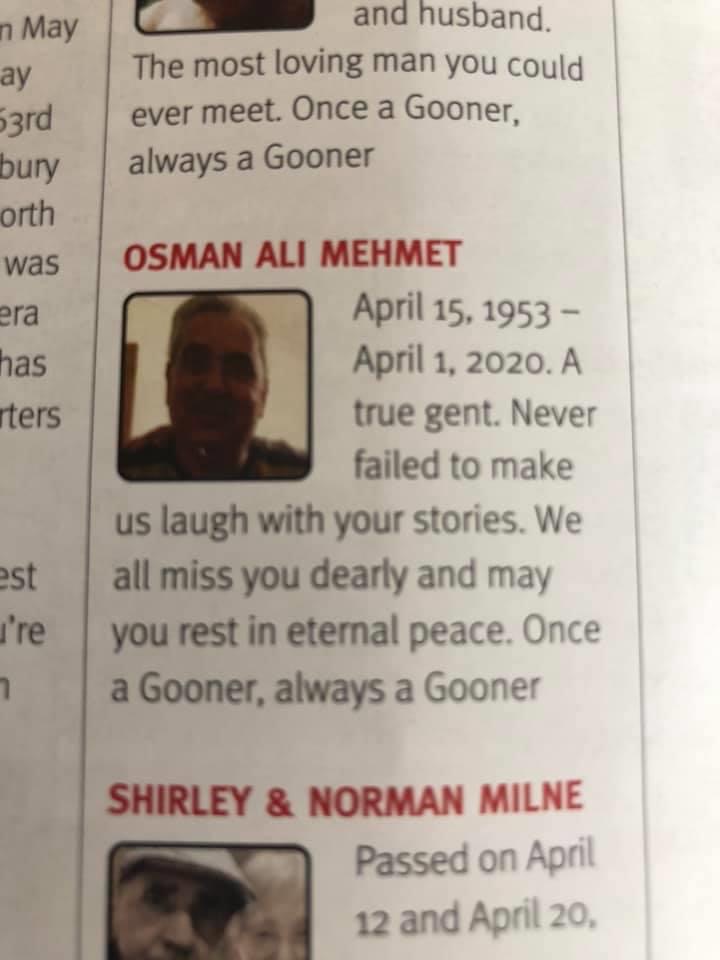
“We have several copies [of the programme],” says Zuhre. “Mum has a Memory Box of dad where she keeps a copy.”
Unbeknown to the family another cousin in Cyprus then got in touch with Fenerbahçe to tell them about Osman’s sad demise and asked if they could pay tribute in some way. Fenerbahçe is one of Turkey’s big four clubs, and a team Osman had supported as a boy in his native Cyprus that continued after his move to London.
When Fenerbahçe resumed its season in June, Covid safety rules meant they too had to play games behind closed doors. Club officials took the decision to fill some sections of the Şükrü Saracoğlu Stadium in Istanbul with cardboard cut-outs of fans and frontline heroes. One of them was of Osman Mehmet, proudly wearing his Fenerbahçe top, immortalised alongside others taken by this deadly disease.
Ahmet Orhan said Osman’s family and friends were “blown away by the phenomenal gesture.”
Another relative Issy Atahasan, who first informed T-VINE about the Fenerbahçe tribute, thanked the club, posting the following message on Facebook alongside the photo of Osman’s cut-out:
“A devoted Arsenal and Fenerbahçe supporter, his image has been placed in the stands of the Şükrü Saracoğlu Stadium in Istanbul where games are currently played behind closed doors. His spirit will be at every home game from now on. Thank you Fenerbahçe Spor Kulübü for this fantastic gesture.”
Zuhre agrees: “It’s such a great thing to do. It took us completely by surprise. We know everyone was so shocked by dad’s passing. They want to keep his memory going.”
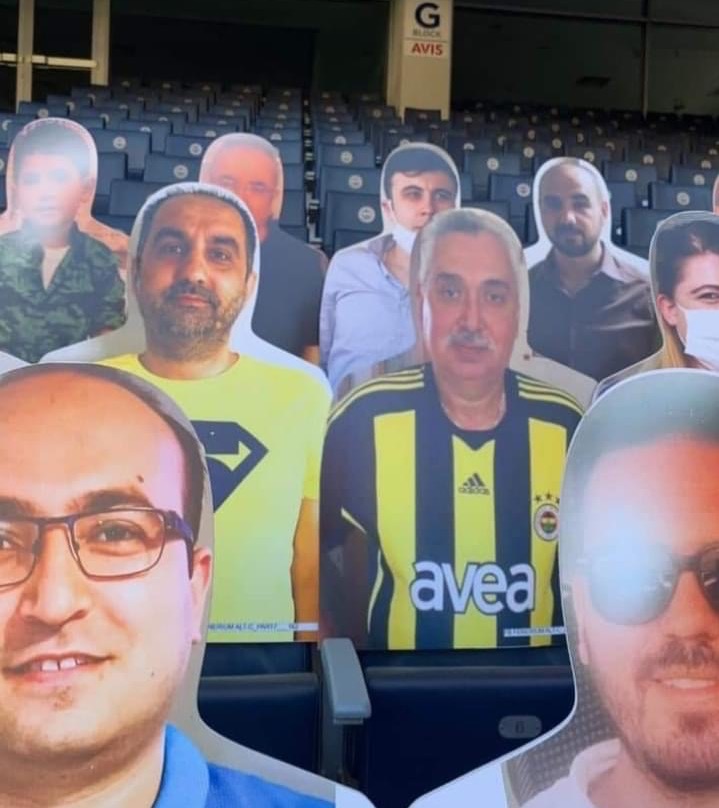
Reflecting on her father’s legacy, Zuhre, herself a mother of two, with a teenage son and another aged two, explains how her father always promoted peace.
“He couldn’t stand people falling out. The negativity, arguments. He’d always say ‘boş ver[never mind], it’s just not worth it’. He didn’t hold grudges.”
“Like all families, we had our squabbles and problems,” Zuhre continues. “But since dad died, everyone has put their differences aside. We’ve all come together.”
“Dad always cared for his wife. Now my two sisters and I look after mum, we don’t leave her alone. She suffers from chronic illnesses. During the crisis, we were really afraid for her. We kept thinking if anyone in the family caught the virus, she would be the most vulnerable out of all of us.” Zuhre’s voice drifts off.
After a pause she says: “Dad’s death has changed me massively as a person. I always knew family was important, but I value it even more now. If I’m stuck, I just think, ‘what would dad do?’”
RIP Osman Mehmet, born in Ergazi, Cyprus, on 15 April 1953, died in London, UK, on 1 April 2020.

